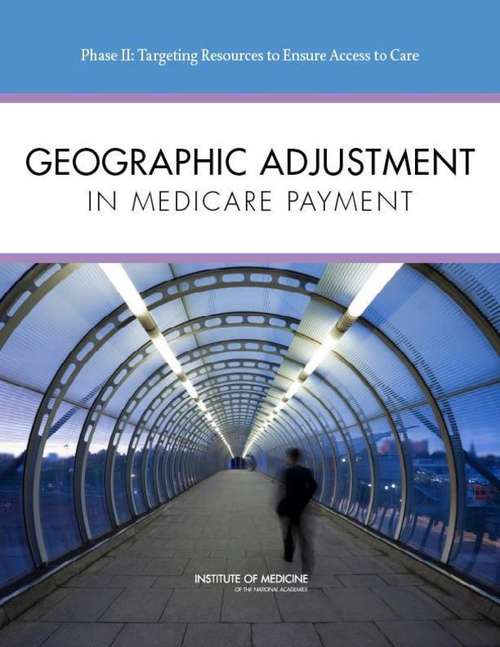Synopsis
Medicare, the world's single largest health insurance program, covers more than 47 million Americans. Although it is a national program, it adjusts payments to hospitals and health care practitioners according to the geographic location in which they provide service, acknowledging that the cost of doing business varies around the country. Under the adjustment systems, payments in high-cost areas are increased relative to the national average, and payments in low-cost areas are reduced. In July 2010, the Department of Health and Human Services, which oversees Medicare, commissioned the IOM to conduct a two-part study to recommend corrections of inaccuracies and inequities in geographic adjustments to Medicare payments. The first report examined the data sources and methods used to adjust payments, and recommended a number of changes. Geographic Adjustment in Medicare Payment - Phase II:Implications for Access, Quality, and Efficiency applies the first report's recommendations in order to determine their potential effect on Medicare payments to hospitals and clinical practitioners. This report also offers recommendations to improve access to efficient and appropriate levels of care. Geographic Adjustment in Medicare Payment - Phase II:Implications for Access, Quality, and Efficiency expresses the importance of ensuring the availability of a sufficient health care workforce to serve all beneficiaries, regardless of where they live.
